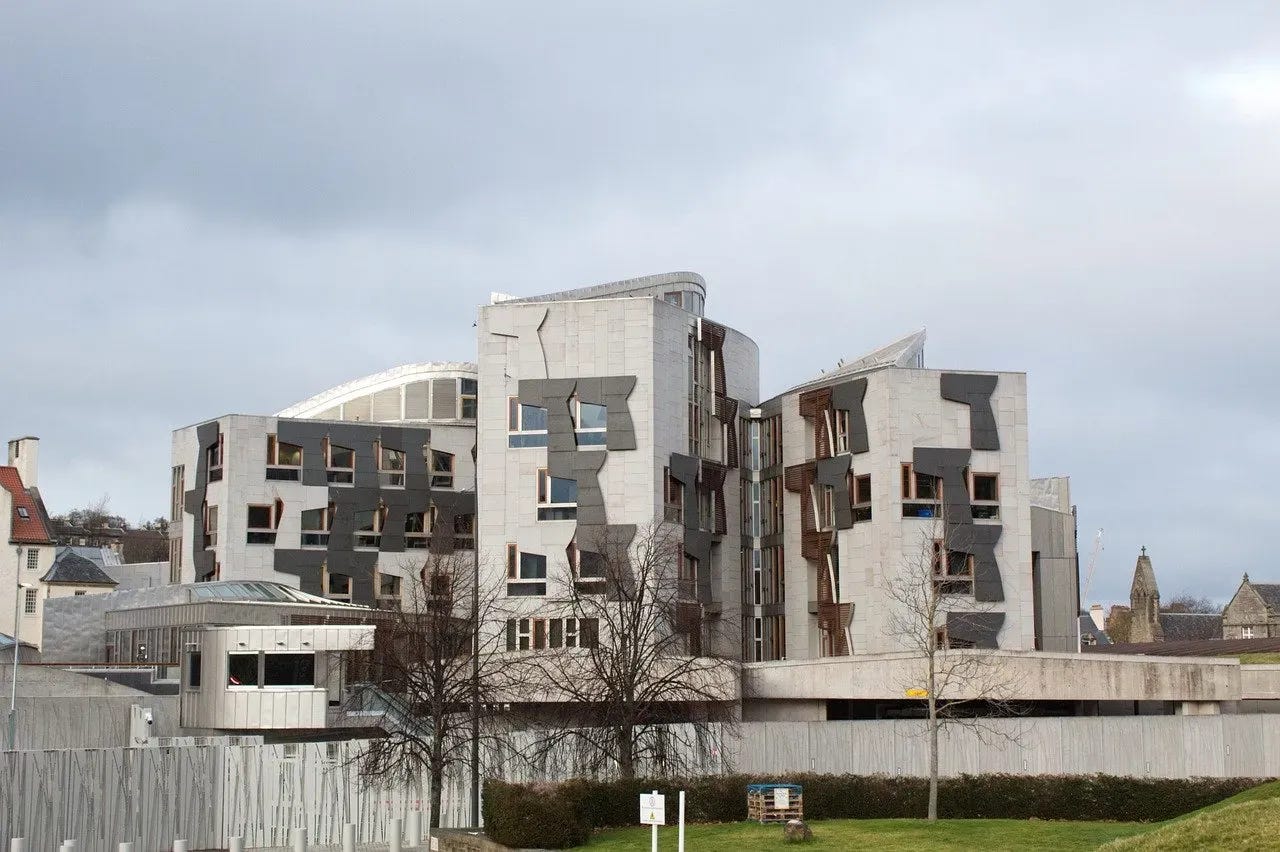Oh boy, a pro-independence majority!
Politics Notebook #26: Nationalists are talking up the prospect of a Yes majority at Holyrood. One problem with that…
There is some excitement among nationalists over the latest poll findings.
Not just the survey showing 56 per cent of Scots in favour of independence, which we have discussed already, but the responses on voting intentions for the 2026 Holyrood elections.
Pollster Find Out Now asked a representative sample of voters how they would cast their vote if the election were to be held the next day.
On the constituency vote, the SNP enjoyed a clear lead. Down from the kind of numbers it used to see at the height of Nicola Sturgeon’s reign, but still comfortably ahead of the pack.
Constituency voting intentions SNP: 35% Labour: 15% Reform: 12% Conservatives: 12% Lib Dems: 12% Greens: 9% Alba: 3%
On the regional list vote, the Nationalists again came out on top, but with the smaller parties doing better than on the first-past-the-post ballot.
Regional list voting intentions SNP: 25% Labour: 15% Conservatives: 15% Greens: 14% Lib Dems: 12% Reform: 10% Alba: 7%
The National, which commissioned the poll, asked Professor Sir John Curtice for a seat distribution based on these figures, and this is what he came up with:
SNP: 57 seats Conservatives: 15 seats Greens: 15 seats Labour: 14 seats Lib Dems: 13 seats Reform: 8 seats Alba: 7 seats
The poll has drawn sceptical noises from the likes of Chris McCall, Paul Hutcheon, and Stuart Campbell, and I must admit I have my doubts, too. But that’s not the point of this blog.
Let’s assume these numbers are on the up-and-up. That this is what will happen next year. That, between them, the Yes-aligned parties will win 79 of the 129 seats in the Scottish Parliament. That there will be that holiest of grails: a pro-independence majority.
Then what? Because, if pro-independence majorities are your thing, I’ve got some good news for you: there is already one at Holyrood. In fact, the Scottish Parliament has been majority pro-independence since 5 May 2011, when Alex Salmond secured the SNP its system-defying 69-seat landslide. On every day since then — all 5,095 of them — unionists have been in the minority at Holyrood.1
That is almost 14 years now and, you might have noticed, Scotland is still not independent. It is no closer to independence, I would contend, than it was on 18 September 2014 when the Yes campaign lost the referendum.
Now, if you’re a secessionist, you might shake your fist over this, and complain bitterly about the undemocratic nature of the UK, and maybe you’re right (spoiler: you’re not), but a sulk is not a solution. If 14 years of Yes majorities at Holyrood has not brought independence any closer, why would another five years make any difference?
What plan has John Swinney devised that didn’t occur to Sturgeon or Salmond?
How will an SNP-Green-Alba majority extract another referendum from Downing Street when an SNP-Green majority could not?
By what mechanism will the Scottish Parliament circumvent the Scotland Act and its reservation of the union of parliaments and crowns to Westminster?
Why is this pro-independence majority different from all other pro-independence majorities?
I’m not suggesting that nationalists should become fatalistic, or that devolution is the Hotel California of constitutional arrangements. Indeed, if Scotland is ever able to leave the Union, it will almost certainly be thanks to the political myopia of the British governing class. Tony Blair was convinced to set up a Scottish parliament. David Cameron was convinced to radically expand its powers, make it legally permanent, and grant a referendum on independence. Who knows what Keir Starmer might be convinced to do?
But until he, or a successor, can be convinced of something, it is difficult to see what meaningful progress the Scottish nationalist movement can make. A pro-independence majority is no longer a game-changer. It’s become the game, and the SNP has been playing it for 14 years, hoping that its voters don’t notice that independence remains as elusive as ever.
You need 65 seats for an overall majority at Holyrood. At the last three elections, the SNP and the Greens won 71, 69 and 72 seats combined.





I’m actually fine with the current balance of devolved and reserved powers, and Holyrood could do a decent job and run Scotland much better if it could focus on that instead of Indy or gender identity (OK I live in Yorkshire now). And as a newfound devolutionist I see no reason to fear that a pro Indy majority in Holyrood is going to split Scotland off from the EU - Westminster learned it’s lesson in September 2014, and any further calls for a referendum are going to get a sound eff off.